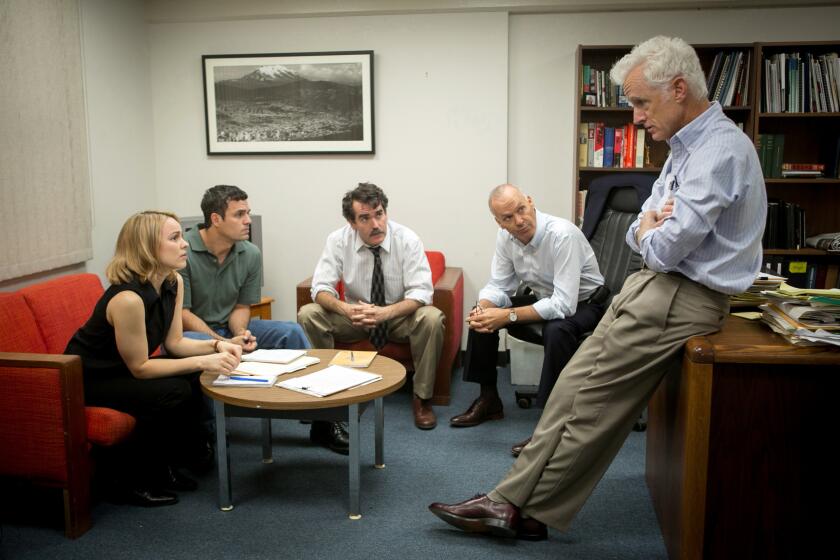Investing along with the crowd

Crowdfunding has raised money to build libraries, make movies and send children on school trips. Soon it may let small investors buy stakes in fledgling companies.
Federal regulators proposed rules Wednesday that would allow individuals to invest in start-ups over the Internet.
The goal is to make it easier for entrepreneurs to raise money and create jobs, while giving small investors an early shot at latching onto the next Apple Inc. or Google Inc.
The Securities and Exchange Commission voted unanimously to propose the regulations, which are required as part of the Jumpstart Our Business Startups Act, which was passed by Congress last year. The JOBS act allows businesses to raise up to $1 million through crowdfunding each year.
The SEC plan is an evolution of the burgeoning crowdfunding movement, in which people fund projects by contributing small amounts of money through websites such as kickstarter.com and indiegogo.com.
Budding entrepreneurs already raise money through the crowdfunding of donations or loans. And wealthy individuals who meet certain standards are allowed to buy stakes in companies via crowdfunding.
The SEC proposal would allow anyone, regardless of income, to invest this way.
Critics predict scam artists and entrepreneurs with shaky ideas will gravitate toward the sites, resulting in losses for naive investors.
But proponents hailed the plan, saying it would give regular people access to investment opportunities that have long been the preserve of the venture capital industry.
“The potential for crowdfunding is immense, and we’ve just barely scratched the tip of the iceberg,” said Anindya Ghose, a New York University professor who studies crowdfunding.
Companies would get entree to knowledgeable and passionate investors who are more tied to companies than fickle Wall Street traders are, supporters say.
“When you get an investor, you don’t just get money,” said Mike Norman, 31, co-founder and president of WeFunder, a Boston company that brings together accredited investors and start-up companies looking to raise cash.
“You get someone who is now more emotionally invested in what you are doing and much more likely to do what they can to help the enterprise succeed.”
Crowdfunding is attractive to entrepreneurs such as Carl Dietrich, co-founder of Terrafugia Inc., a start-up in Woburn, Mass., that is building a flying car.
“For publicly traded companies, individual investors don’t have the ability to influence the success and failure of a company,” Dietrich said. “But for small start-ups, they absolutely have the ability to influence success and failure. That’s exciting and something we haven’t seen before.”
Critics predict that fraudsters will flock to crowdfunding, as will weak companies that can’t raise money any other way.
The most promising start-ups, they say, will raise money in traditional ways because it’s ultimately easier and more likely to ensure success.
“Proponents of crowdfunding have done a very good job selling the idea that mom-and-pop retail investors are now going to have access to this private club … when that’s really just a fairy tale,” said Michael Stocker, a partner at law firm Labaton Sucharow. “It’s going to be a terrible mismatch of the most risky start-ups with the most vulnerable investors.”
Venture-capital firms, opponents say, are adept at weeding out bad ideas and poor management teams.
Companies that secure venture capital funding get critical professional advice and a tacit seal of approval on Wall Street.
Other analysts say crowdfunding is promising but not a slam dunk.
Studies suggest that fraud will not be a major problem, said Gordon Burtch, an assistant professor at the University of Minnesota’s Carlson School of Management.
But a basic premise of crowdfunding — the collective wisdom of crowds, in which knowledgeable individuals emerge to guide others — is unlikely to be as potent as proponents suggest.
“There’s a potential that it will all work, but as it stands now, it may all start off a little rocky,” Burtch said.
To protect investors, the SEC proposed limiting how much money people can devote to crowdfunding.
Investors could put in no more than $2,000 a year, or 5% of their annual income, or net worth, whichever is greater, if their income and net worth both are less than $100,000.
They could earmark up to 10% of their income, or net worth, whichever is greater, if either their income or net worth totals at least $100,000.
The proposal would require various levels of financial disclosure by companies based on how much they’re raising through crowdfunding. The SEC plan does not require companies to verify investors’ income and net worth.
The SEC will accept comments for 90 days and will issue a final decision next year.






